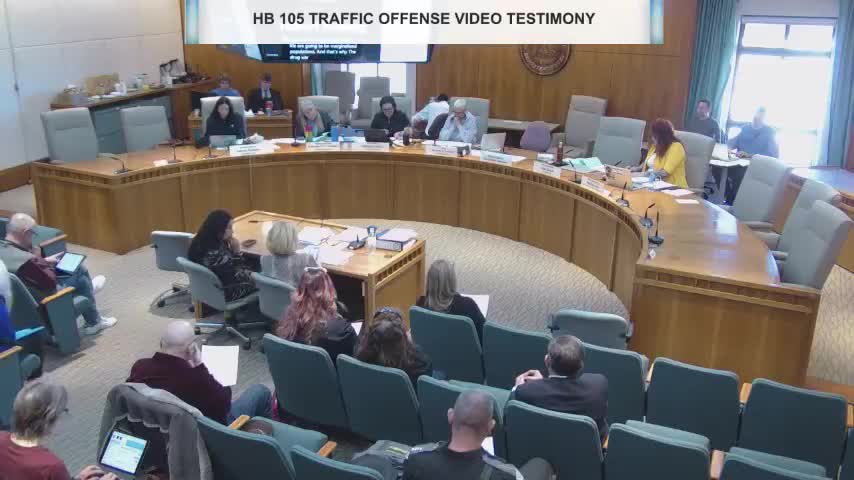Sponsors roll juvenile-code overhaul to seek more stakeholder input after wide-ranging debate
Get AI-powered insights, summaries, and transcripts
Subscribe
Summary
Lawmakers heard competing testimony on a comprehensive juvenile-code bill that would expand the pool of cases eligible for adult processing, change amenability and detention rules, and alter definitions of serious youthful offenders; sponsors agreed to pause and rewrite after stakeholders raised constitutional, procedural and resource concerns.
A proposed rewrite of the state's juvenile delinquency code drew vigorous testimony from prosecutors, police chiefs, labor unions, student leaders and criminal-justice advocates. Sponsors agreed to roll the bill for further negotiation with stakeholders after the committee heard contrasting views on expanding adult processing for some youths.
House Bill 134 would make a number of changes to New Mexico's delinquency law, including additions to the list of offenses that could trigger adult processes for youth and adjustments to detention, sentencing and amenability rules. Sponsors said the aim is to close gaps in the existing code that they say allow violent young offenders to return to the street with little consequence.
"Homicide ranks as the second leading cause of death among youth age 15-24 in New Mexico," JD Bullington of the Greater Albuquerque Chamber of Commerce told the committee, summarizing several law-enforcement witnesses' arguments that serious juvenile violence has increased. Police chiefs and district attorneys urged early and decisive interventions for repeat violent offenders; Chief Troy Weisler of the New Mexico State Police said the current juvenile code is "failing the juveniles of the state" by not intervening earlier.
Opponents, including juvenile defenders and child-advocacy organizations, argued the bill would widen the net, increase incarceration and harm already-marginalized youth. The ACLU, public defenders and youth-led groups urged investments in prevention, behavioral health, diversion and restorative programs instead of extended adult processing. "The juvenile system has always been based on rehabilitation," Andrew Vallejo of the New Mexico Criminal Defense Lawyers Association said.
Students from Albuquerque High School told the committee they feel unsafe at school and urged changes; several testified in favor of measures that would increase accountability for violent juveniles. At the same time, juvenile-justice reform groups and service providers said the bill eliminates tools intended to screen for amenability and risks casting children into adult criminal courts without sufficient individualized review.
Committee members asked numerous procedural and legal questions about detention risk-assessment tools, amenability hearings and where 14- and 15-year-olds fit within the existing categories of youthful and serious youthful offenders. Sponsors and experts said they are continuing to negotiate the language and are open to amending provisions on amenability and thresholds. Several committee members requested more time to examine the bill's many sections; sponsors agreed to roll the bill and return with revisions.
The wide-ranging testimony reflected a split between those who want tougher responses to juvenile violent crime and those who warn criminalizing youth will worsen long-term outcomes and recidivism. By rolling the bill, sponsors intend to continue stakeholder discussions, including with the Sentencing Commission and the Judicial Council, before resubmitting the legislation.
